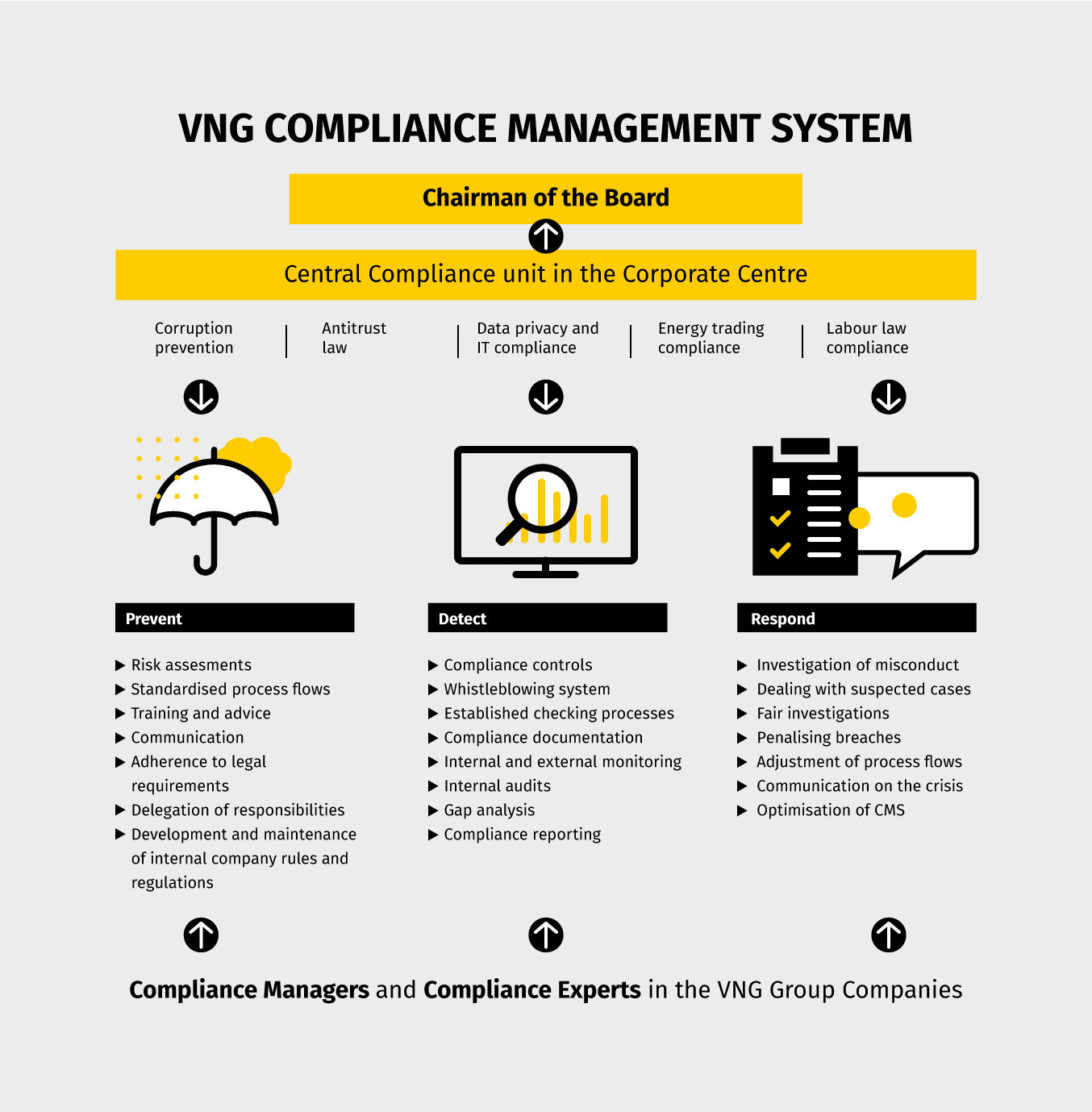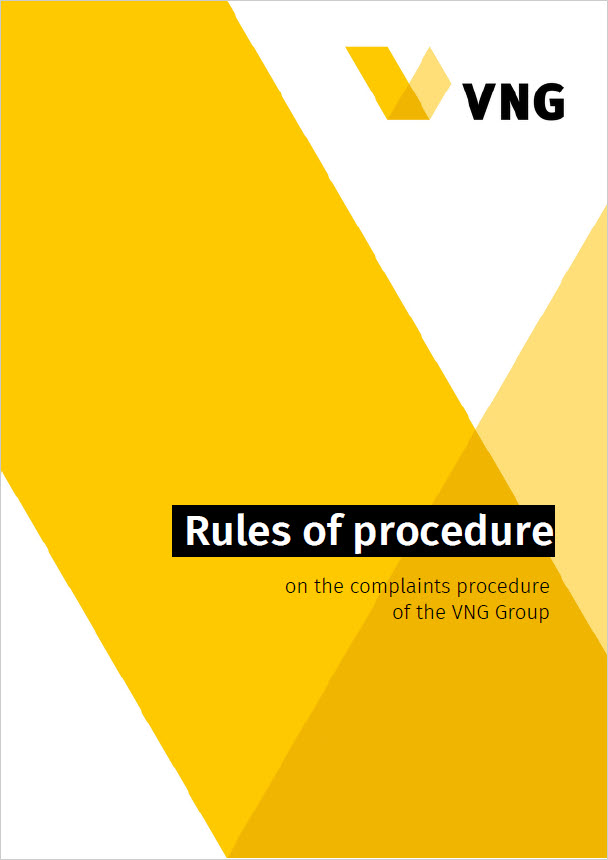Compliance
Compliance – VNG corporate culture and objectives
Compliance, in other words adherence to legal requirements and internal policies, is the basis of our business. Responsible conduct of all managing bodies, senior staff and employees in conformity with the rules is fundamental to the trust that our customers and business partners place in us and to the company’s success. Awareness of compliance and its importance is promoted and expected at all levels of the group.
That’s why VNG has established a comprehensive compliance management system, which, with regard to breaches of the law and internal policies, follows the three classic pillars of prevent, detect early and respond appropriately.

The aim is to maintain a robust compliance culture, embracing management by example, a clear belief in compliance, self-commitment to responsible conduct and transparency of rules and decisions. To achieve this goal, VNG holds for example regular in-person training and e-learning sessions on general and subject-specific compliance issues. Transparent internal communication and specific advice on individual compliance matters helps to further consolidate the inner attitude and convictions of employees.
The Compliance organisation
VNG’s central Compliance unit manages group-wide measures to prevent corruption and breaches of antitrust law, and ensure that regulatory requirements are met. The Compliance Officer reports directly to the Chairman of the Executive Board. He is supported by the Compliance department and the local Compliance managers in the individual VNG subsidiaries, who are in constant touch with one another.
The VNG mission statement and the Code of Conduct derived therefrom provide the foundation for the Compliance organisation. The standards laid down in the Code of Conduct essentially determine the way in which we frame our relationships with business partners, shareholders, employees and society. The Code of Conduct therefore acts as both a guide and an operational framework, and provides an overview of the most important legal provisions and company policies.
Clear messages sent out to lower-level managers, the workforce and also, where appropriate, to business partners about all internal company rules, obligations, responsibilities, roles and reporting channels in relation to the Compliance organisation create transparency, acceptance and adherence to the rules inside the company and beyond.
Compliance risks and programmes
Identifying, analysing and assessing compliance risks forms the basis for preventative measures and for the introduction of measures to counter known compliance risks. In order to assess and categorise risks, our Compliance organisation includes technically skilled and independent experts, who take over the management of identified risks.
Clear process flows, internal rules and regulations, sensible delegation of responsibilities and oversight of the legal requirements to be met help VNG to integrate compliance requirements into all workflows for day-to-day business.
Adaptation and optimisation of existing processes and an effective internal control system are indispensable parts of the Compliance mechanism at VNG.
Monitoring and improvement of the Compliance organisation
The suitability and effectiveness of the compliance management system are monitored and documented in an appropriate manner. VNG’s entire Compliance organisation is responsible for implementing the system, for rectifying identified vulnerabilities and improving the system.
The Compliance Officer receives both internal and external reports of suspected criminal offences or other breaches of the law, rules and regulations. These reports are treated in the strictest confidence upon request.
Rules of procedure for the complaints procedure of the VNG Group
The Code of Procedure describes the VNG's complaints procedure for potential grievances in its own activities or in the supply chain. It explains the principles, channels, responsibilities, processes and follow-up measures of the procedure. It is aimed at internal and external whistleblowers who can report any relevant observations.
